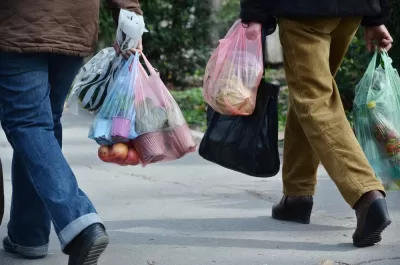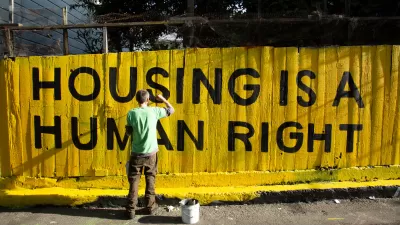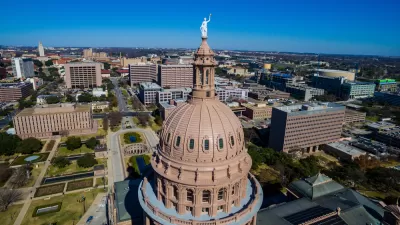Even in cities where state law pre-empts plastic bag fees, there are ways to reduce plastic waste.

Across the country, numerous states or municipalities have imposed restrictions to discourage the single-use plastic bags you might use while picking up groceries. But even if they wanted to, many states ban cities from imposing fees on those bags. In Ohio, for example, this is the case, as the latest state budget bars cities in Ohio from banning or imposing fees on plastic bags. A recent study suggests there are still ways to reduce single-use plastic bag waste.
OSU economist Wuyang Hu co-authored a study observing two convenience stores on the University of Kentucky’s campus which saw plastic bag consumption decline by about a third. The key to reduction, he explains, is using encouragement rather than discouragement.
That encouragement is what behavioral economists refer to as a “nudge,” a low-cost incentive meant to influence an individual’s choices or actions. In this case, Hu explains, the store offered customers a token if they declined a bag, which could be directed toward a handful of charities.
“So in this process the consumers have the freedom to choose a bag, but yet the consumer also has the freedom to give it up in return for a token,” Hu says. “That token, worth five cents apiece, can be donated to a local charity.”
FULL STORY: ‘Nudges’ Can Reduce Plastic Bag Use Even Where Bans or Fees are Banned

Planetizen Federal Action Tracker
A weekly monitor of how Trump’s orders and actions are impacting planners and planning in America.

Chicago’s Ghost Rails
Just beneath the surface of the modern city lie the remnants of its expansive early 20th-century streetcar system.

San Antonio and Austin are Fusing Into one Massive Megaregion
The region spanning the two central Texas cities is growing fast, posing challenges for local infrastructure and water supplies.

Since Zion's Shuttles Went Electric “The Smog is Gone”
Visitors to Zion National Park can enjoy the canyon via the nation’s first fully electric park shuttle system.

Trump Distributing DOT Safety Funds at 1/10 Rate of Biden
Funds for Safe Streets and other transportation safety and equity programs are being held up by administrative reviews and conflicts with the Trump administration’s priorities.

German Cities Subsidize Taxis for Women Amid Wave of Violence
Free or low-cost taxi rides can help women navigate cities more safely, but critics say the programs don't address the root causes of violence against women.
Urban Design for Planners 1: Software Tools
This six-course series explores essential urban design concepts using open source software and equips planners with the tools they need to participate fully in the urban design process.
Planning for Universal Design
Learn the tools for implementing Universal Design in planning regulations.
planning NEXT
Appalachian Highlands Housing Partners
Mpact (founded as Rail~Volution)
City of Camden Redevelopment Agency
City of Astoria
City of Portland
City of Laramie





























